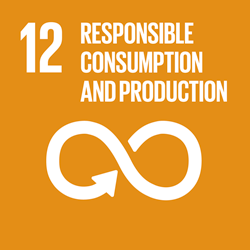Technological watch
Evaluation of Tropical Tomato for Growth, Yield, Nutrient, and Water Use Efficiency in Recirculating Hydroponic System
The issue of low tomato production in the tropics like Ghana has been a long-standing challenge. The advent of greenhouse technology has not significantly improved the yield of tomato compared to Japan and the Netherlands. Immediate technological interventions are needed. Through hydroponics, the low-node order pinching at a high-density planting system has been recommended in some studies. This system was intended to be established in Ghana, and it would be expected to improve the yield and fruit quality of tomato. In effect, a study was carried out in the greenhouse, at Chiba University using this system. A tropical tomato cultivar (Jaguar) was evaluated with Momotaro York at 3.8 m s2 and pinched at the fourth truss. Data collected were water and nutrient use efficiencies, plant growth rate, dry matter partitioning, and fruit yield and quality, as well as some physiological characteristics. The experiment was laid out in a randomized complete block design with three replications. Results showed that Jaguar cultivar was two times more efficient in water and nutrient use than Momotaro York at first harvest. Root tissue density recorded in Jaguar was significantly lower compared to Momotaro York. The net assimilation rate (NAR) recorded was markedly higher in Jaguar than Momotaro York at last harvest. All the physiological attributes recorded in both cultivars were not significantly different. Plant dry mass (DM) recorded was similar in the two cultivars; however, the DM partitioned to fruits was 55% in Jaguar compared to 46.5% DM for Momotaro York. Fruit yield per area did not differ in the two cultivars. Fruit yields of 28.8 and 30 kg m−2 per year were recorded in Jaguar and Momotaro York, respectively. In comparison, this yield result is 1.2–1.25 times less and 14.4–15 times higher than current tomato yields recorded in Japan (greenhouse) and Ghana, respectively. Fruit quality, in terms of total soluble solids recorded in Jaguar cultivar being 5.4 %Brix, was within the 3.5–5.6 %Brix recorded in Ghana. This system could effectively enhance the yield and quality of tomato in the tropics as well as economising on the use of resources.
Publication date: 01/07/2020
Author: Williams Ayarna
Reference: doi: 10.3390/agriculture10070252






